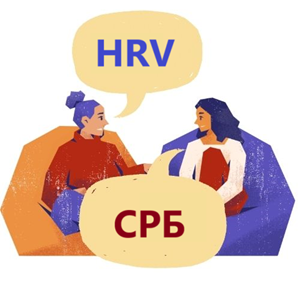Learn: All the cases in the same place
CROATIAN VERSION
Questions
Transcription – CRO
Moja baka je cijeli život živjela na selu. Nije često bila u velikim gradovima. Grad joj se nije sviđao i nije pričala o gradovima. Uvijek kad je morala putovati u grad, govorila je: „Osjećam se kao da moram ići u džunglu.”
Kad je ostarila, morala je posjećivati doktore, a doktori su bili u gradu. Iako nije vjerovala doktorima, kad je imala termin, išla je u bolnicu s mojom mamom, svojom kćerkom. Moja mama je uvijek htjela pomoći baki. Išle su autom. Mama je vozila.
Kad su se mama i ona vozile kroz grad, baka joj je stalno govorila: „Pazi, kćeri, semafor! Gle, pogazit ćeš čovjeka, bože, bože…”.
Jednom je mama postala baš nervozna zbog bake i njezinih komentara i rekla joj je: „Sad je dosta. Prestani mi soliti pamet! Izađi iz auta i idi sama. Blizu bolnice smo. Idi po ovim stepenicama i skreni u ulicu lijevo. Nećeš se više ponašati tako bezobrazno prema meni!”
VOCABULARY
- džungla – jungle
- ostariti – to get old
- posjećivati -imperfective form of “posjetiti” – to visit
- iako – although
- termin – appointment
- semafor – traffic lights
- pogaziti – to run over
- bože – oh god
- prestati (prestani) – to stop
- soliti pamet (phrase) – to tell what to do
- stepenice – stairs
- ponašati se – to behave
- bezobrazno – rude, saucy
SERBIAN VERSION
Questions
Transcription – SRB
Cyrillic
Моја баба је цели живот живела на селу. Није често била у великим градовима. Град јој се није свиђао и није причала о градовима. Увек кад је морала да путује у град, говорила је: „Осећам се као да морам да идем у џунглу.”
Кад је остарила, морала је да посећује лекаре, а лекари су били у граду. Иако није веровала лекарима, кад је имала термин, ишла је у болницу са мојом мамом, својом ћерком. Моја мама је увек хтела да помогне баки. Ишле су колима. Мама је возила.
Кад су се мама и она возиле кроз град, бака јој је стално говорила: „Пази, кћери, семафор! Гле, погазит ћеш човека, боже, боже…”.
Једном је мама постала баш нервозна због баке и њених коментара и рекла јој је: „Сад је доста. Престани да ми солиш памет! Изађи из кола и иди сама. Близу болнице смо. Иди по овим степеницама и скрени у улицу лево. Нећеш се више понашати тако безобразно према мени!”
Latin
Moja baba je celi život živela na selu. Nije često bila u velikim gradovima. Grad joj se nije sviđao i nije pričala o gradovima. Uvek kad je morala da putuje u grad, govorila je: „Osećam se kao da moram da idem u džunglu.”
Kad je ostarila, morala je da posećuje lekare, a lekari su bili u gradu. Iako nije verovala lekarima, kad je imala termin, išla je u bolnicu sa mojom mamom, svojom ćerkom. Moja mama je uvek htela da pomogne baki. Išle su kolima. Mama je vozila.
Kad su se mama i ona vozile kroz grad, baka joj je stalno govorila: „Pazi, kćeri, semafor! Gle, pogazićeš čoveka, bože, bože…”.
Jednom je mama postala baš nervozna zbog bake i njenih komentara i rekla joj je: „Sad je dosta. Prestani da mi soliš pamet! Izađi iz kola i idi sama. Blizu bolnice smo. Idi po ovim stepenicama i skreni u ulicu levo. Nećeš se više ponašati tako bezobrazno prema meni!”
VOCABULARY
- џунгла / džungla – jungle
- остарити / ostariti – to get old
- посећивати / posećivati -imperfective form of “posjetiti” – to visit
- иако / iako – although
- термин / termin – appointment
- семафор /semafor – traffic lights
- погазити / pogaziti – to run over
- боже / bože – oh god
- престати (престани) / prestati (prestani) – to stop
- солити памет / soliti pamet (phrase) – to tell what to do
- степенице / stepenice – stairs
- понашати се / ponašati se – to behave
- безобразно / bezobrazno – rude, saucy
Translation
Moja baka je cijeli život živjela na selu. / Moja baba je celi život živela na selu.
My grandmother lived in the village all her life.
Nije često bila u velikim gradovima.
She was not often in big cities.
Grad joj se nije sviđao i nije pričala o gradovima.
She didn’t like the city and didn’t talk about cities.
Uvijek kad je morala putovati u grad, govorila je: „Osjećam se kao da moram ići u džunglu.” / Uvek kad je morala da putuje u grad, govorila je: „Osećam se kao da moram da idem u džunglu.”
Whenever she had to travel to the city, she said, “I feel like I have to go to the jungle.”
Kad je ostarila, morala je posjećivati doktore, a doktori su bili u gradu. / Kad je ostarila, morala je da posećuje lekare, a lekari su bili u gradu.
When she got older, she had to visit doctors, and the doctors were in town.
Iako nije vjerovala doktorima, kad je imala termin, išla je u bolnicu s mojom mamom, svojom kćerkom. / Iako nije verovala lekarima, kad je imala termin, išla je u bolnicu sa mojom mamom, svojom ćerkom.
Although she didn’t trust doctors, when she had an appointment, she went to the hospital with my mom, her daughter.
Moja mama je uvijek htjela pomoći baki. Išle su autom. Mama je vozila. / Moja mama je uvijek htela da pomogne baki. Išle su kolima. Mama je vozila.
My mom always wanted to help grandma. They went by car. Mom was driving.
Kad su se mama i ona vozile kroz grad, baka joj je stalno govorila: „Pazi, kćeri, semafor! Gle, pogazit ćeš/pogazićeš čovjeka/čoveka, bože, bože…”.
When my mom and she were driving through the city, my grandmother constantly said to her: “Watch out, daughter, the traffic lights! Look, you will run over the man, oh God, oh God…”.
Jednom je mama postala baš nervozna zbog bake i njezinih komentara i rekla joj je: „Sad je dosta.
Once, mom got really nervous because of grandma and her comments and said to her: “That’s enough now.
Izađi iz auta i idi sama. Blizu bolnice smo. Idi po ovim stepenicama i skreni u ulicu lijevo/levo. Nećeš se više ponašati tako bezobrazno prema meni!”
Get out of the car and go alone. We are near the hospital. Go up these stairs and turn left into the street. You won’t behave so rude toward me anymore!”
Analysis
Let’s analyze the text from the beginning considering the cases that are used.
LEGEND:
NOM – nominativ, basic form
GEN – genitiv
DAT – dativ
AK – akuzativ
VOK – vokativ
LOK – lokativ
INST – instrumental
CRO: Moja baka (NOM) je cijeli život (AK) živjela na selu (LOK).
SRB: Moja baba (NOM) je celi život (AK) živela na selu (LOK).
Maybe you wonder why cijeli život/ celi život is akuzativ. The answer is that we use akuzativ when expressing period, like for whole life, for a year, for a month… – cijeli/celi život, jednu godinu, jedan mjesec/mesec…
Nije često bila u velikim gradovima (LOK, plural).
Grad (NOM) joj se nije sviđao i nije pričala o gradovima (LOK).
Reminder: Lokativ comes after the connectors u, na, po, prema, o.
Uvijek/uvek kad je morala putovati u grad (AK), govorila je: „Osjećam/osećam se kao da moram ići u džunglu (AK).”
In both examples, it’s about direction – akuzativ.
CRO: Kad je ostarila, morala je posjećivati doktore (AK), a doktori (NOM, plural) su bili u gradu (LOK).
SRB: Kad je ostarila, morala je da posećuje lekare (AK), a lekari (NOM, plural) su bili u gradu (LOK).
Iako nije vjerovala doktorima/verovala lekarima (DAT, plural), kad je imala termin (AK), išla je u bolnicu (AK) sa mojom mamom (INST), svojom kćerkom (INST).
Moja mama (NOM) je uvijek htjela pomoći/uvek htela da pomogne baki (DAT).
Išle su autom/kolima (INST). Mama (NOM) je vozila.
Kad su se mama (NOM) i ona vozile kroz grad (AK), baka (NOM) joj je stalno govorila: „Pazi, kćeri (VOK), semafor! Gle, pogazit ćeš čovjeka (AK)/pogazićeš čoveka (AK), bože, bože… (VOK)”.
Here we have 2 uses of vokativ – kćeri and bože – because she’s referring to her daughter and God. Did you know that God – Bog – in vokativ sounds Bože. It’s because a vocal change called palatalizacija occurs.
Jednom je mama (NOM) postala baš nervozna zbog bake (GEN) i njezinih komentara (GEN, plural) i rekla joj (DAT) je: „Sad je dosta.
Prestani mi (DAT) soliti pamet (AK)! / Prestani da mi (DAT) soliš pamet (AK)!
Izađi iz auta/kola (GEN) i idi sama.
Blizu bolnice (GEN) smo. Idi po ovim stepenicama (LOK) i skreni u ulicu (AK) lijevo/levo.
Nećeš se više ponašati tako bezobrazno prema meni! (LOK)”
Remember that “ja” in lokativ/dativ has long and short form, just like all other pronouns. Meni is a long form and it’s used always with a prepositions, like prema in the example above. The short form is mi and it’s used in all other cases, like Rekla mi je, Dao mi je…
What does SOLITI PAMET mean and when can you use it?
Soliti pamet literally means to salt my brain or mind.
The phrase is used in Croatian and Serbian languages when someone is constantly saying what you should do. They’re giving you advice you haven’t asked for. They behave like they’re smarter than you and that annoys you. Then you can say – Ne soli mi pamet!

Pamet is used like a synonym for mozak (brain) or um (mind) only in the phrases. Except for this one, we often say: “Sišao/la si s pameti!” That means “You climbed down your mind” literally. It’s used when you can not believe what someone did, how stupid thing.
Let’s practice!






